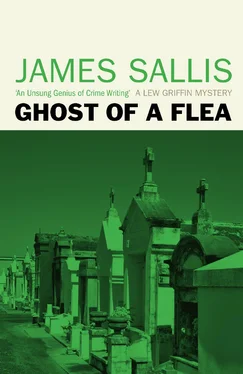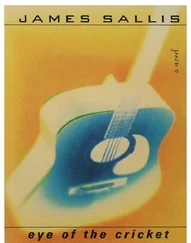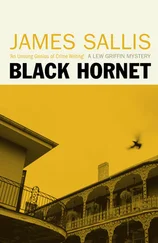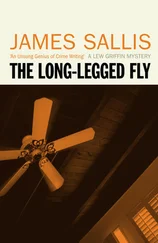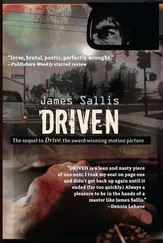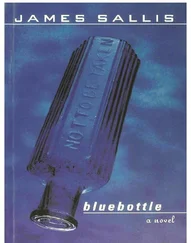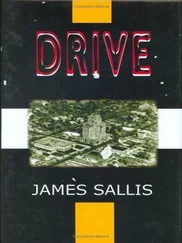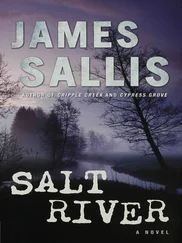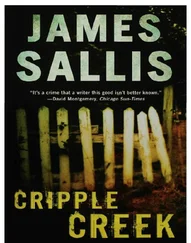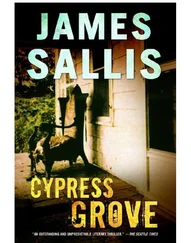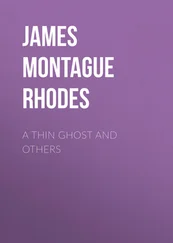James Sallis - Ghost of a Flea
Здесь есть возможность читать онлайн «James Sallis - Ghost of a Flea» весь текст электронной книги совершенно бесплатно (целиком полную версию без сокращений). В некоторых случаях можно слушать аудио, скачать через торрент в формате fb2 и присутствует краткое содержание. Жанр: Криминальный детектив, на английском языке. Описание произведения, (предисловие) а так же отзывы посетителей доступны на портале библиотеки ЛибКат.
- Название:Ghost of a Flea
- Автор:
- Жанр:
- Год:неизвестен
- ISBN:нет данных
- Рейтинг книги:4 / 5. Голосов: 1
-
Избранное:Добавить в избранное
- Отзывы:
-
Ваша оценка:
- 80
- 1
- 2
- 3
- 4
- 5
Ghost of a Flea: краткое содержание, описание и аннотация
Предлагаем к чтению аннотацию, описание, краткое содержание или предисловие (зависит от того, что написал сам автор книги «Ghost of a Flea»). Если вы не нашли необходимую информацию о книге — напишите в комментариях, мы постараемся отыскать её.
Ghost of a Flea — читать онлайн бесплатно полную книгу (весь текст) целиком
Ниже представлен текст книги, разбитый по страницам. Система сохранения места последней прочитанной страницы, позволяет с удобством читать онлайн бесплатно книгу «Ghost of a Flea», без необходимости каждый раз заново искать на чём Вы остановились. Поставьте закладку, и сможете в любой момент перейти на страницу, на которой закончили чтение.
Интервал:
Закладка:
I turned back from the window to find Deborah’s eyes bright. She’d been watching me.
“You miss it.”
“What?”
“All of it. The books. What you used to do out on the streets, helping people. Teaching. LaVerne and Clare.”
“A curious list.” I smiled. “And a long time ago.”
“No. It wasn’t, Lew. Not long at all. That’s my point.”
“It’s just …”
“Just?”
“I have a family now. You, David, Alouette and her crew. Maybe not exactly the kind of family Republicans are always going on about, but a family nonetheless. Things change.”
“Things do, yes. I’m not sure people do.”
I picked up our cups and took them to the sink. Stood there a moment looking out the window. Bat, Clare’s cat, now mine, jumped onto the windowsill outside and began rubbing shoulder and head against it.
“I don’t think I can explain it, or even that I understand it myself. But it’s a little like when you’re crossing the lake.” The bridge over Lake Ponchartrain was twenty-five miles long. “You get halfway out there and you can’t see either bank. You just keep on going. It doesn’t much matter why you’re on the bridge in the first place.”
I raised the window to let Bat in and fed him, probably for the third or fourth time today, but who was counting. Then I rinsed our cups. Deborah sat watching. Bat lifted his head from the bowl to assure himself that no one was likely to fly in under radar and get his food, then went back to eating. Deborah yawned.
“Where I’m going is to bed. You?”
“Maybe I’ll try getting some work done.”
“Don’t stay up too late, love,” she said, reclaiming her legs and letting them take her upstairs to bed.
When Deborah was gone, I took a bottle of Jamaican ginger beer from the refrigerator and went out to the slave quarters. I wasn’t writing books anymore, not for years, but habits hang around like ghosts or idiot children that won’t be got rid of, and sometimes late at night, still, I’d find myself sitting expectantly before the computer. Instead of writing books, I reviewed them. Every few weeks Daniels (last name only, on the official name tag) rang the bell and pulled from her bag a bulky padded envelope bearing the logo of the Times-Picayune, Washington Post, Boston Review.
This one, a biography of Kenneth Fearing, had arrived a month or so back, so I must be close to deadline on it. Fearing, who had achieved celebrity as a leftist poet and mystery novelist in the Thirties and Forties, was now almost wholly forgotten, yet another victim of what he himself had called the magic eraser of silence. Fiercely antiestablishment, a man to whom literary acclaim could mean only the containment of any truly challenging writing, Fearing would have found publication of Floor of the Blue Night by an academic press (according to his mood of the moment) amusing, ironic or abhorrent. I opened again onto the book’s heavily indented pages, thickets of inset quotations and citations like broad stone stairs, like archways, and pulled out my notes, jotted on a typing sheet folded in half.
Then I put the book down, turned off the light and sat peering out. Bat had joined me, an indistinct, inert lump like a small gray haystack on the desk by the window. A family , I told Deborah, with no idea that, even as I said it, already my family had begun shrinking.
In preparation for writing the review I’d looked up a half-remembered poem assembled by Fearing’s contemporary, Alfred Kreymborg, from headlines of the day.
DOUBLE MURDER IN A HARLEM FLAT.
CREW LOST WHEN LINER SINKS AT SEA.
CHINAMAN BOILS RIVAL IN A VAT.
COOLIDGE SURE OF MORE PROSPERITY.
EARTHQUAKE SHAKES THE WHOLE PACIFIC COAST.
MORE FOLK OWN FORD CARS THAN FOLK WHO CAN’T.
KU KLUX KLAN WATCH ANOTHER NEGRO ROAST….
It was in the Thirties, Fearing’s time, that America turned itself into an urban society. It was also, with the proliferation of mass media, when the great divide began developing between high and low art, and Fearing carried that divide within him, on the one hand consciously adopting a kind of writing that limited him, on the other finding within those limits a release of creative powers that otherwise might never have been available to him. Populists like James Agee, and in his own way Fearing, rejected belief that the old high art held some possibility of salvation. Now art, all art, had been democratized, leveled, marked down for quick sale. Now it could only be packaged and repackaged and packaged again to fill the unending need for consumer goods and the media’s relentless demand for product: distilled into streams of sweet-tasting poison.
Little doubt that Agee, Fearing and the rest overstated the case. But in their mixture of populist pride and sadness at the decline of a higher culture lay something vivid and luminous, the apprehension of one of those rare moments when society visibly, utterly changes, and the sense of loss that sweeps over us then. That stream of poison, too, is a thing we all recognize.
Blacks more than most.
The poison goes down from generation to generation like the dissimulation and mimicry our forebears learned in order to survive, never saying what they really thought, putting their distress signals in code, till now, at this late hour in America’s history and our own, we no longer know, maybe can’t know, who we are or what we think.
Year by year by year the poison drips in. We’re told it will heal us.
Chapter Five
I’d got up that morning (off the bench, so to speak), taken a long look at the reef of bottles, and climbed upstairs to bed. During the day I awoke several times and lay there listening to the old house’s creaks and groans, remembering Whitman’s I think I will do nothing for a long time but listen/And accrue what I hear unto myself , before falling back asleep. I got up for good when I heard Deborah down in the kitchen. It was dark.
“And here we thought you’d become just another brave explorer claimed by the desert,” she said when I stumbled in.
“Bad news, I’m afraid. We had to kill the camels for food. And the bwana, of course.”
“Bwana first, I hope.”
“Damned right. Not much meat on Ol’ Massuh, though. Tell me there’s coffee.”
“I was thinking about making some. You can chew the beans, if you’re really desperate.”
“Desperate, yes-but chewing beans would only remind me of the camels. I loved those camels.”
“You do need coffee.”
That was the first pot, as we sat idly talking, both of us too tired to give much thought to food or other routines of the day. We pulled various corners, edges and butt ends of cheese out of the fridge and ate them with the remains of a loaf of French bread. Deborah had stopped off at her set designer’s apartment after leaving the flower shop, and it was now past nine. I’d slept, in bed as opposed to on bench, fourteen hours.
“I just didn’t have the heart to wake you this morning when I came down. You were, by the way, doing a fine imitation of Bat, half on the bench and half off, no bones anywhere.”
I squeezed both eyes shut and opened them again: Bat, wincing.
“You didn’t get caught in the storm, then?” she asked.
“Only the beginnings of it. Which is just as well, from what I saw this morning. I’m surprised the streets were clear.”
“They weren’t. Passable, though. Everything bleached-out and blasted-looking, but with this brilliant sun and bright blue sky overhead. There had to have been all kinds of trash in the streets, tree limbs, trash cans, African drums, a bloated politician’s body or two, but I guess the rain washed most of it away.”
Читать дальшеИнтервал:
Закладка:
Похожие книги на «Ghost of a Flea»
Представляем Вашему вниманию похожие книги на «Ghost of a Flea» списком для выбора. Мы отобрали схожую по названию и смыслу литературу в надежде предоставить читателям больше вариантов отыскать новые, интересные, ещё непрочитанные произведения.
Обсуждение, отзывы о книге «Ghost of a Flea» и просто собственные мнения читателей. Оставьте ваши комментарии, напишите, что Вы думаете о произведении, его смысле или главных героях. Укажите что конкретно понравилось, а что нет, и почему Вы так считаете.
